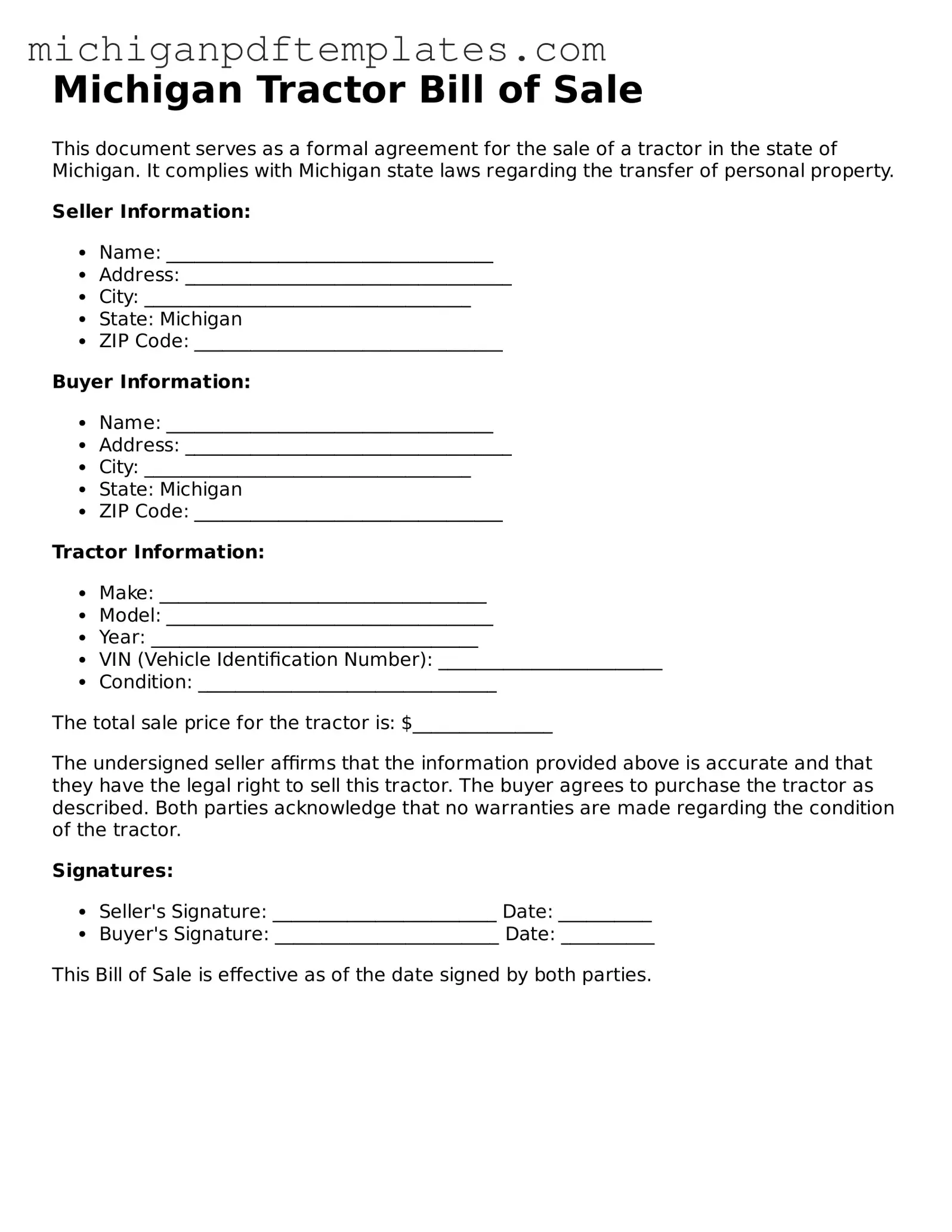Legal Michigan Tractor Bill of Sale Template
The Michigan Tractor Bill of Sale form is a legal document used to record the sale and transfer of ownership of a tractor in Michigan. This form serves as proof of the transaction for both the buyer and the seller, ensuring that all necessary details are documented. If you're ready to complete your tractor sale, fill out the form by clicking the button below.
Get Your Form Now

Legal Michigan Tractor Bill of Sale Template
Get Your Form Now

Get Your Form Now
or
▼ PDF Form
Finish this form quickly and move on
Fill in and complete Tractor Bill of Sale online quickly.